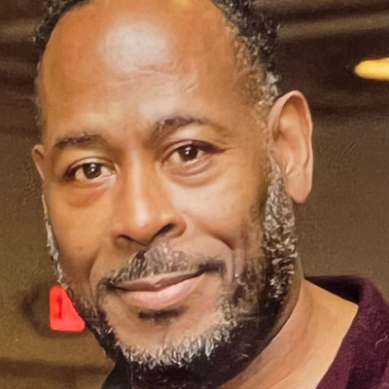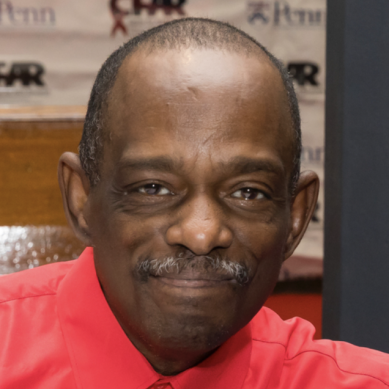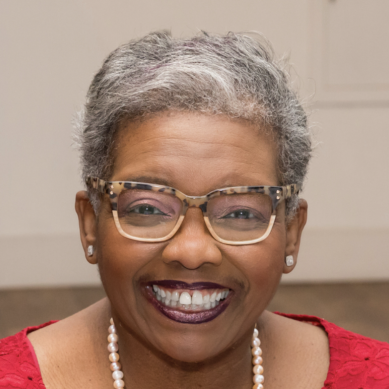Community Advisory Board
Vision
Our vision is a world where HIV and AIDS research meaningfully involves impacted communities, is collaboratively created, and openly shared.
Mission
As a Philadelphia-based HIV Cure Research Community Advisory Board, our mission is to:
- Integrate community involvement in HIV and AIDS cure-related research and clinical trials
- Serve as a bridge community to provide input and feedback to BEAT-HIV projects
- Foster and maintain communication and partnerships with project researchers in order to promote transparency and disseminate findings in HIV cure research to our communities
Statement from BEAT-HIV CAB Executive Team
We are the Community Advisory Board (CAB) of the BEAT-HIV Delaney Collaboratory. The membership of our CAB represents a broad spectrum of stakeholders who are united in the search for an HIV cure. We are people living with HIV. We are members of communities deeply affected by HIV and AIDS. We are allies united in advancing research towards an HIV cure. Including perspectives of CAB members in the HIV cure-directed research agenda is a critical component of our work. The BEAT-HIV CAB is action-oriented. Many of us are long term survivors, come from different walks of life, represent communities disproportionately affected by HIV, and bring a range of perspectives and experiences to help inform our mission. We operate with the core principle that no matter where we come from or what our community of origin is, we all benefit by coming together as one cohesive unit to advance cure research. Many of us have years of experience in community and HIV activism, while others are new to this work. Together, with our researcher colleagues, we focus on the problem of how HIV persists in the body even with the successes of Antiretroviral Treatment (ART). We develop research questions that seek to create new strategies for HIV eradication in hopes of developing a cure for HIV.
Our CAB works in partnership with scientific and medical researchers at The Wistar Institute, the University of Pennsylvania, and the Philadelphia FIGHT Community Health Centers (FIGHT), who are conducting HIV cure-directed studies in our communities. For 25 years, The Wistar Institute has partnered with Philadelphia FIGHT to provide access to clinical trials and research studies and to promote community health education. FIGHT is leading community-based organization (CBO) with a federal qualified community health center (FQHC). Since 1990, they have provided primary care, community education, research, and advocacy for people living with HIV/AIDS and other affected communities in the greater Philadelphia area regardless of their ability to pay. This joint community-academic partnership, which we term the Community Engagement Group (CEG), seeks to foster and integrate robust community involvement in all areas of HIV cure directed research and community health education. This innovative partnership of the CAB, Wistar, Penn, and FIGHT is unique and pioneering in the field of HIV cure-directed research. It brings together the diverse experiences and expertise of our CAB members, our project scientists, and our community-based (CBO) health partner, Philadelphia FIGHT, to advance research towards an HIV cure.
William B. Carter, Chair
Danielle M. Campbell, Co-Chair

William B. Carter
It’s a very exciting time in the field of HIV cure research, and it is an honor to lead a community advisory board of caring individuals. I enjoy showing others just how important the community is to research. Research is so important to show advancements in communication and medicine and to help remove stigma. Just think, years ago people living with HIV were taking hundreds of pills, and now there is an option for just one medication and even to help prevent infection. So you see, community and researchers can work together and that is why I participate in research studies and clinical trials.

Danielle M. Campbell
Being in service to communities of people living with and affected by HIV is a noble calling and has been my life’s work. As WE continue in the fight against stigma, oppression, and other intersectional identities that increase people’s vulnerabilities for HIV, we must remember that people closest to the public health issue are best suited to identify a solution.

Andre Ford, Ph.D.
Dr. Andre H. Ford currently serves as the Executive Administrator of The COLOURS Organization, bringing more than three decades of experience in nonprofit leadership and community development across the United States. A former Marine, Dr. Ford’s lifelong commitment to service is reflected in his work advancing organizational excellence, sustainability, and equity within communities of color. His leadership in HIV research, prevention, and advocacy spans more than 25 years and has shaped both local and national public health efforts. His dedication to advancing HIV cure research is demonstrated through his involvement with the BEAT-HIV Community Advisory Boards at The Wistar. Beyond his professional work, Dr. Ford takes great pride in his role as a father of three young men and grandfather to two, grounding his professional dedication in a deep personal commitment to family, community, and future generations.

Marcus Hill, B.F.A, Cert. Ed.
As an Artist, Activist, and Educator, Project T.E.A.C.H PEER EDUCATOR. I am always evolving. Our present is a present that must be unwrapped, acknowledged then appreciated daily. We have a duty and responsibility for understanding, respecting, and trusting that everyone is entitled to happiness. Stop, look, listen and learn.

Rease N. Maddox, MBA
I am humbled to be in a space where I can help bridge the gap between the community and the scientists who are working to find a cure. My goal is to assist in eradicating the stigma that plagues our community so members can feel normal when discussing cure related issues and empowered to seek out medical treatment.

Kevin Mathis
Serving five (5) years in the US Navy as an Administrator, along with my twenty-five (25+) years in Behavioral Health, Customer Service, and Outreach, has prepared me to once again be in the fight and stand in the gap for my community. This time it’s the fight against HIV/AIDS. By remaining current on HIV cure research, I plan to debunk conspiracy theories and provide a clear path to treatment for my community.

Jeanette Murdock
I have done many research studies. I was at a community event for HIV/AIDS and heard about the BEAT-HIV Community Advisory Board. I was invited to attend a meeting, and I learned that I can have a voice for my community to help share the importance of community in research – giving my advocacy more meaning. Bridging science and community.

Daiquiri Robinson
“Treating people with dignity and respect should be the forefront of our actions. A kind word or a simple smile can awaken a light of hope in those who are struggling to be heard and seen.” The BEAT-CAB allows each of us to make strides in research by making sure that the community is at the forefront of our thoughts. This has been rewarding since people are depending on us to give them hope.

Kristina Stallings
Kris is a young woman who aspires to join the healthcare field and join the fight for a cure for HIV. She is currently performing research in the University of Pennsylvania to learn more about current developments in the field. As a member of the CAB, she is part of the Education and Outreach Committee where she strives to share information about BEAT-HIV efforts toward a cure. She hopes that HIV will be cured within her lifetime.

Amy Onorato
Community Engagement Coordinator
Since coming to Penn in 2010, Amy has been involved in project management in the biomedical research setting. She is the Community Engagement Coordinator for the BEAT-HIV CAB since 2019 and has been a member of the CFAR community since 2016. Throughout her career, Amy has been focused on creative organizational dynamics, with a background in organizational anthropology, project management, as well as photography, and video editing.
Community Advisory Board
If you would like to learn more about the CAB, please contact Amy M. Onorato

